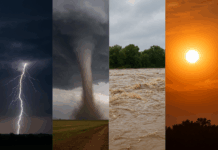A slow-draining shower is a common household problem, but when it becomes a recurring or severe issue, it may signal that it’s time to call in a professional plumber. While minor clogs can sometimes be resolved with DIY methods, persistent drainage problems often indicate more serious plumbing issues. Knowing the signs that require professional intervention can save you time and money and prevent costly water damage. Here are the key indicators that it’s time to call a plumber for your sluggish shower drain.
Water is Pooling Around Your Feet
If you find yourself standing in a puddle of water every time you shower, it’s a clear sign of a drainage problem. Water pooling indicates that the drain is either partially or fully blocked. While occasional slow drainage might be caused by hair or soap scum, consistent pooling suggests a deeper clog or a more complex issue, such as a blockage in the main sewer line. A plumber like those at https://www.plumberhobart.au/ has the tools to properly clear the drain and diagnose any underlying concerns.
Gurgling Noises or Air Bubbles
When you hear unusual gurgling sounds or notice air bubbles rising from the drain, it’s a red flag. These noises typically occur when water struggles to pass through a clogged pipe, creating air pockets. Gurgling can also indicate a venting problem, which can disrupt the entire plumbing system. A plumber can inspect the vent pipes and ensure proper drainage and airflow.
Foul Odors Emanating from the Drain
A shower drain that emits an unpleasant smell, even after cleaning, could indicate a more serious plumbing issue. Foul odors often stem from a buildup of debris, stagnant water, or even mold and mildew growing within the pipes. In some cases, the odor may be caused by a broken or malfunctioning P-trap, which prevents sewer gases from escaping into your home. A plumber can identify the source of the smell and repair or replace any faulty components.
Recurring or Persistent Clogs
If your shower drain repeatedly clogs despite your best efforts to clear it, you’re likely dealing with more than just a surface-level blockage. Persistent clogs may indicate a buildup of hair, soap scum, or mineral deposits deep in the pipes. A plumber has specialized equipment, such as a drain snake or hydro-jetting system, to effectively remove stubborn clogs and restore proper drainage.
Water Backing Up Into Other Drains
When a shower drain problem begins affecting other fixtures, such as the toilet or sink, it’s a major warning sign of a more serious plumbing issue. Water backing up into multiple drains often points to a blockage in the main sewer line. This requires immediate attention from a plumber to prevent potential water damage and sewage backups.
Visible Water Damage or Mold Growth
If your slow-draining shower is accompanied by water stains, warped flooring, or mold growth around the shower area, you may have a hidden leak. Slow drainage can sometimes cause water to seep into surrounding areas, creating the perfect environment for mold. A plumber can inspect the plumbing system, detect hidden leaks, and prevent further water damage.
DIY Solutions Are No Longer Effective
When home remedies like baking soda and vinegar, plungers, or chemical drain cleaners fail to resolve the issue, it’s time to bring in a professional. Overusing chemical drain cleaners can actually damage your pipes, leading to more expensive repairs. Plumbers have the expertise and equipment to handle tough clogs without causing further harm to your plumbing system.









